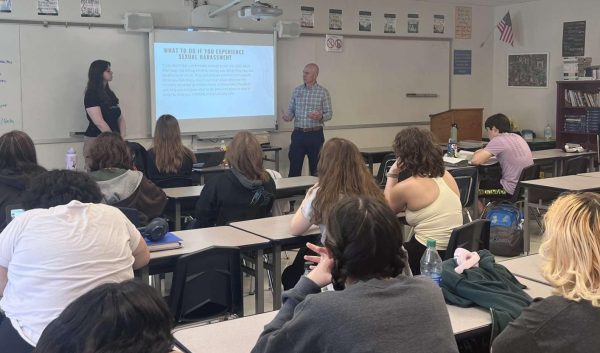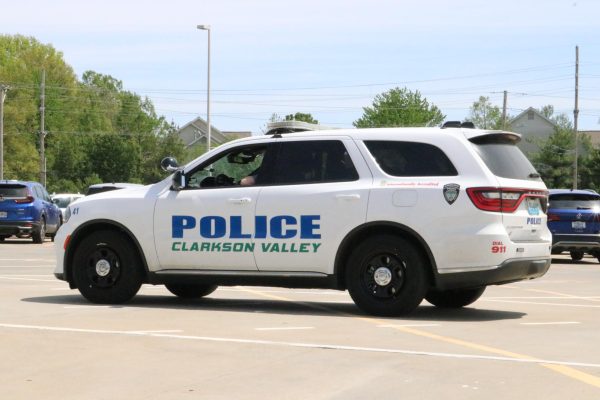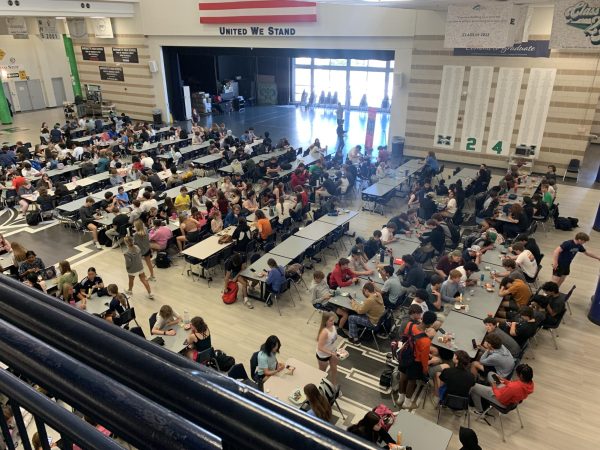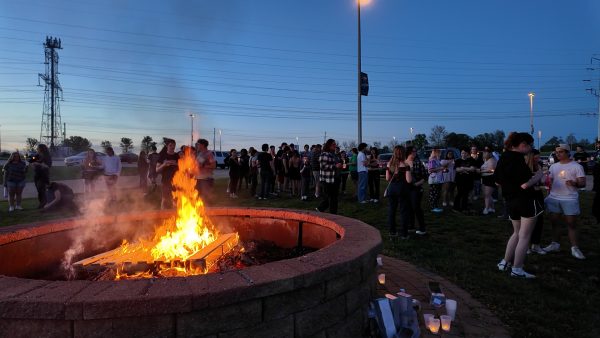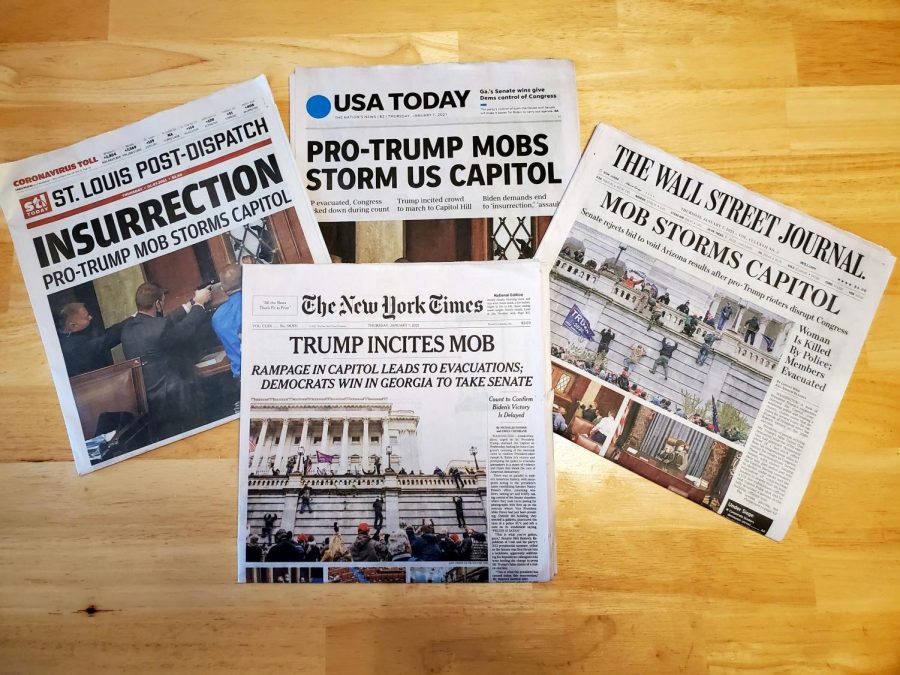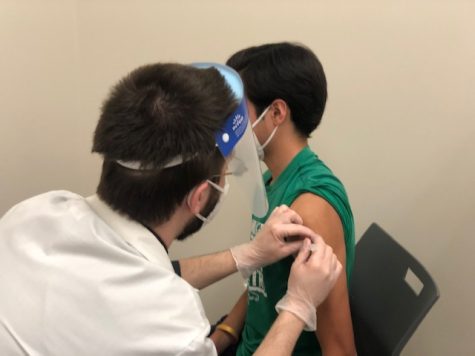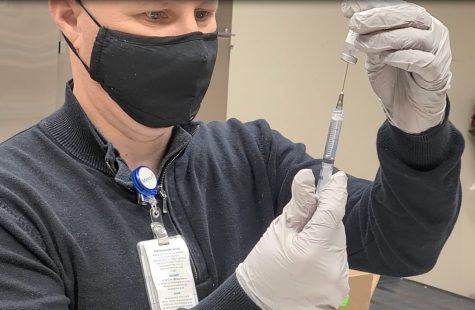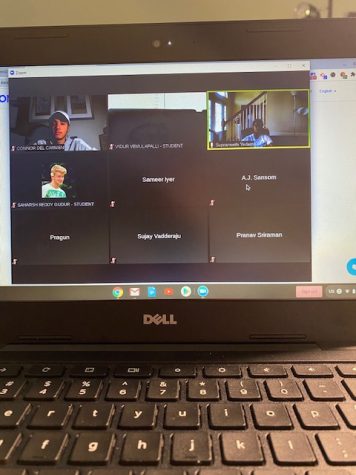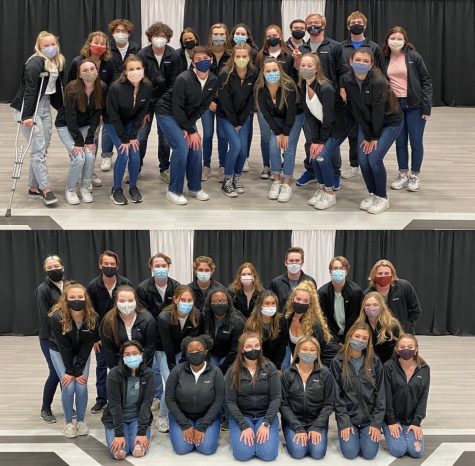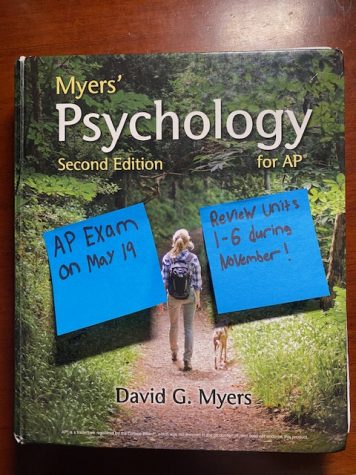Living Through History: How Social Studies Teachers Taught the Breaching of the Capitol
Media by Anna Gray
Anna Gray, social studies teachers, brought in newspapers from multiple publications to class the day after the incident at the Capitol Building. Gray said it was important to offer many resources to students to demonstrate all the perspectives of a situation.
When Anna Gray, social studies teacher, instructed her students to watch the counting of the electoral votes, she was expecting an uneventful process. However, the usually mundane event took a drastic turn.
Last Wednesday, Jan. 6, supporters of President Trump stormed the U.S. Capitol forcing it into lockdown and halting the counting of electoral votes. This was the first time the building had been breached since the War of 1812.
“It can be confusing and scary,” Gray said. “Some people need to have reassurance from a teacher who can help them through it and answer questions.”
Gray and other social studies teachers in RSD had to quickly plan for teaching an emotionally charged moment of historical significance. Her first priority the day after the incident was to allow students in all of her classes to voice their thoughts and to ask questions.
She also said it was important to provide the full context of what had occurred. Gray said many of her students only receive their news in small pieces from social media, so it was important to clearly show the order of events that had occurred.
Gray emphasized how important other teachers in her department were in ensuring the resources they gave to students were as neutral as possible.
“We all are colleagues who look over each other’s materials to come together with unbiased resources,” Gray said.
Junior Ava Krause, government student in Gray’s class, said the class dynamic was different the day after the incident.
“It was kind of tense and nervous because it was the day after a huge event just went down,” Krause said. “It was a bit difficult to talk because everyone was nervous.”
Before coming to class, Krause read through four different news sites with varying political views to ensure she had the full scope of the situation. She then went into class the next day where the conversation focused more on fact than opinion.
Some of the topics centered around the consequences for those involved in storming the Capitol and the status of those who had been injured. Gray also answered questions about what would happen if the vice president were to invoke the 25th Amendment, which would remove President Trump from office.
Ultimately, Krause said she felt as if the class could’ve been more productive if more students had spoken up with thoughts or questions.
“We should’ve talked about it a little more because oftentimes people don’t go home and do research to fully understand the situation,” Krause said. “With major political events, it’s important for kids to understand what it means.”
The longer we go down the road of not addressing these issues, we just put our students in the unenviable situation of figuring this out.
— Jordan McGaughey, RSD social studies curriculum coordinator
Jordan McGaughey, RSD social studies curriculum coordinator, said his main focus after the incident at the Capitol was ensuring the well-being of teachers and students because many were fearful of more violence.
He also said he communicated frequently with teachers to pool materials that would be informative yet as neutral as possible.
“We try to make sure the resources that we put out are as unbiased as possible and non-politically charged,” McGaughey said. “But at the same time, we want students to be able to communicate their feelings and be in a space conducive enough to have those conversations.”
Although McGaughey understands why some teachers may be hesitant to bring up political issues in class, he said the best way to avoid controversy is to explain the reasoning behind the discussion and provide all of the perspectives to students.
“The longer we go down the road of not addressing these issues, we just put our students in the unenviable situation of figuring this out,” McGaughey said.
Your donation will support the student journalists of Marquette High School. Your contribution will allow us to purchase equipment and cover our annual website hosting costs. You may become a PATRON by making a donation at one of these levels: White/$30, Green/$50, Blue/$100. Patron names will be published in the print newsmagazine, on the website and once per quarter on our social media accounts.
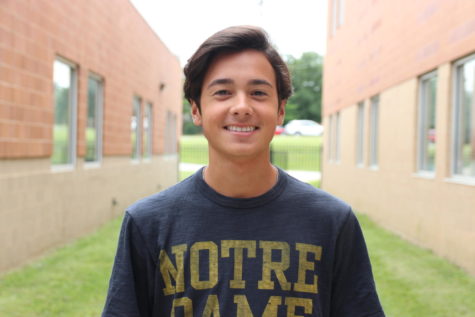
Connor Del Carmen, senior, is the Associate Editor for the Marquette Messenger. This will be his second full school year on staff. Connor also runs varsity...



